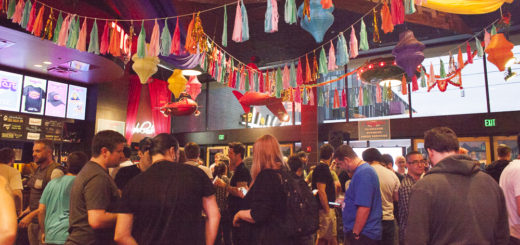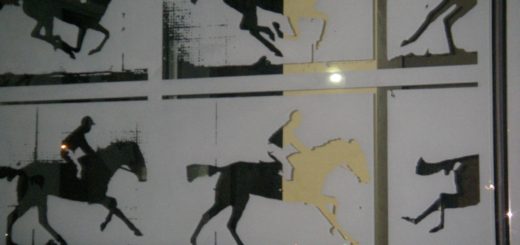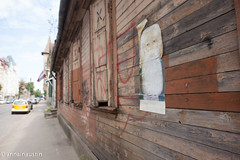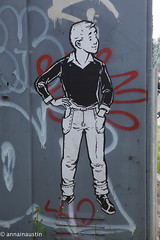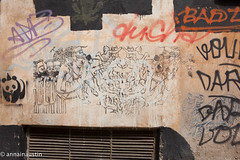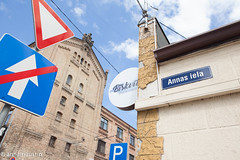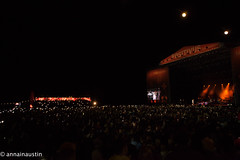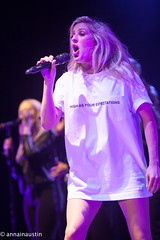Reruns: John Belushi on Saturday Night Live
This is part of the reruns series of guest posts by guest writer Jason Sparks
PETE
John Belushi on Saturday Night Live, 1975-1979, NBC
ON A BRISK SATURDAY EVENING IN OCTOBER OF 1973, PETE BOTSARIS stood at the counter of Olympia Family Restaurant—his place since 1956—and felt a sense of pride that he would never admit to anyone. The Botsaris brothers had come to the US after the war, when it became obvious that Athens would not be fully rebuilt or stable for longer than they could handle. Pete and his brother Stavros had, in the manner of Ellis Island arrivals before and after them, busted their humps to make it—they’d driven hacks, sorted mail, delivered furs for old man Teddy Kojak—and it had paid off. Stavros was an accountant in Long Island, and Pete ran a diner on West 34th; in other words, both men had achieved exactly what they sought to achieve.
Funny thing about it was, as satisfied with his life as Pete had every right to be, he seemed eternally displeased. The staff at Olympia—all cousins, nephews, nieces—were always told what they were doing wrong: not enough ice in the drinks, the cheeseburgers were too big, too many tomatoes, we gotta make turnover! Behind Pete’s back, his family impersonated him, especially the exasperated sigh—taaaahhhhhhh—that seemed to punctuate reality itself for Pete. Only one member of the Botsaris clan would ever imitate Pete to his face; he was one of the few who didn’t work there, and, as it happens, Pete was waiting for him to come into the diner that afternoon—his nephew, Steve Botsaris.
Steve did, in fact, show up, to a hero’s welcome. “Is’ STEVEN! The star from Broadway Hollywood, eh? I can get autograph?” Pete said as he enveloped his nephew in a massive bear hug. Steve, despite being Pete’s nephew, looked like he could be Pete’s son—not a tall man, but thick, stocky, with a low center of gravity ideal for football or cartwheels (both of which Steve had talent for). Steve’s hair was still jet black—Pete’s was silver—but on both men, their hair seemed to leap about on their heads, a single wave, followed closely by the darting eyebrows both men sported and could arch to dramatic (or comedic) effect. Today, though, the usually animate Steve walked in like a man defeated.
“Hey, Uncle Pete,” he said, as he slid into a seat at the counter. “I ain’t Broadway or Hollywood yet…and I don’t see it coming today.” Steve had just been to a callback for The Amazing Adventures of God’s Only Son, a rock musical which had been huge in London and Toronto, and was now set to debut in NYC.
“Come on, Steven…they no hire you? You talented! You sing, dance, you are funny’’—here he tapped Steve conspiratorially on his shoulder—“you Greek! We invent theatre! You tell them I said, huh?”
“Yeah, Pete, I know…I know I’m good, but man, everybody there was good, and there were, like, fifty other guys there. Like there’s always gonna be fifty other guys, or a hundred, everywhere else in town.” Here, Steve locked eyes with his uncle, and took his voice to a serious place that almost no one ever heard. “What I need to do, to really get a shot, is go to Chicago.”
Pete, barely aware he was doing so, arched one of his notorious eyebrows. “Chicago? No Broadway in Chicago, why you think Chicago?”
“No, they don’t got Broadway,” Steve explained, “but they got theatres, and there’s this one called Second City. It’s…it’s what they call an improv theatre, where you go onstage and do comedy, but you…you’re making it up right there. A lot of guys have come out of there and done movies, TV shows, all that stuff. I could probably rule at a joint like that–if I could get to Chicago. But Dad won’t give me the money to get there. He says I should work for you, or drive a cab or whatever.”
“Steven,” Pete said, “you father…my brother…he’s good man, has huge brain; he can do taxes, is very smart—in intellect. BUT”—Pete jabbed a stubby finger at his nephew—“when is come to…feeling, to passion, to drive in the heart, I’m sorry, but you father, he is Vlahos. You know Vlahos? You know what it mean?” Steve did know, having learned it from his uncle, and said it at the exact same time as his uncle, in a spot-on impression: “It mean stupid!” Flattered and (slightly) insulted by his nephew’s impression, Pete smiled and said “you got it, Hollywood”—and began, slowly but with great certainty, to walk towards his grease-smeared NCR cash register. “Steven. To get Greyhound for Chicago—how much is?”
Steve, normally impossible to shut up, was stunned to silence as he made sense of what was apparently happening. “Uh…it’s thirty-five bucks for one way…how come you’re asking?”
“How come I’m asking—taaaahhhhhhh. Because. You father and me, we come here because we dream big when we kids. Now you dream big? Come on…hey. No tell you father. Huh?” Pete opened the register, lifted the innermost cash drawer; tucked beneath it was a ratty old night deposit pouch. It was not used for night deposit anymore.
From the pouch, Pete produced twenties and fifties—the result of insisting on more ice in the drinks and fewer tomatoes. “Thirty-five for bus? Here is…two-fifty. You get hungry in Chicago, maybe. This not—Steven, listen, huh?—This not loan. I make now like Wall Street, I invest in you. Go Chicago, make us proud.”
Pete would never forget that afternoon, because the rest, to say the very least, was history: Steve was, of course, that Steve Botsaris, the one you’re thinking of. The one who did get noticed at Second City. The one who toured in plays written by the guys at American Sneer magazine, when it was still funny. The one who, all of three years later, came back to New York as a cast member on a new show, a sketch comedy show called This Ain’t Prime Time, a live show every week. This was the Steve Botsaris who became a household name in his first season on the show, throwing himself about the stage, inventing characters, inventing catch phrases that would be shouted at him wherever he went—including “LESStomato, LESStomato, LESStomato, HUH?”—from a series of sketches in which he goofed on his own uncle.
And, yes, he was the same Steve Botsaris who got to enjoy his fame and fortune for all of six years, before he was found on the floor of his room at the Beverly Hills Hotel, enough cocaine and heroin in his system to kill three people. The way Pete found out was a phone call he got at the diner; it was his usually staid CPA brother Stavros, howling like a wounded animal. After the call, after the funeral, after all of it, Pete was a different man. The current crop of relatives working at the diner never again heard him grouse about anything, never heard another taaaahhhhhhh. In October of 1982, Pete closed his diner, retired; it’s a Central Perk coffeehouse now—a bland corporate chain. Pete grew sedentary and silent. He attended Orthodox church, he read the Daily News, he watched Joe Franklin; his wife nagged him to find something to do, and he wouldn’t. One night in January of 1985, she nagged him to go to bed when Joe Franklin ended. She thought he was ignoring her, until she didn’t.

